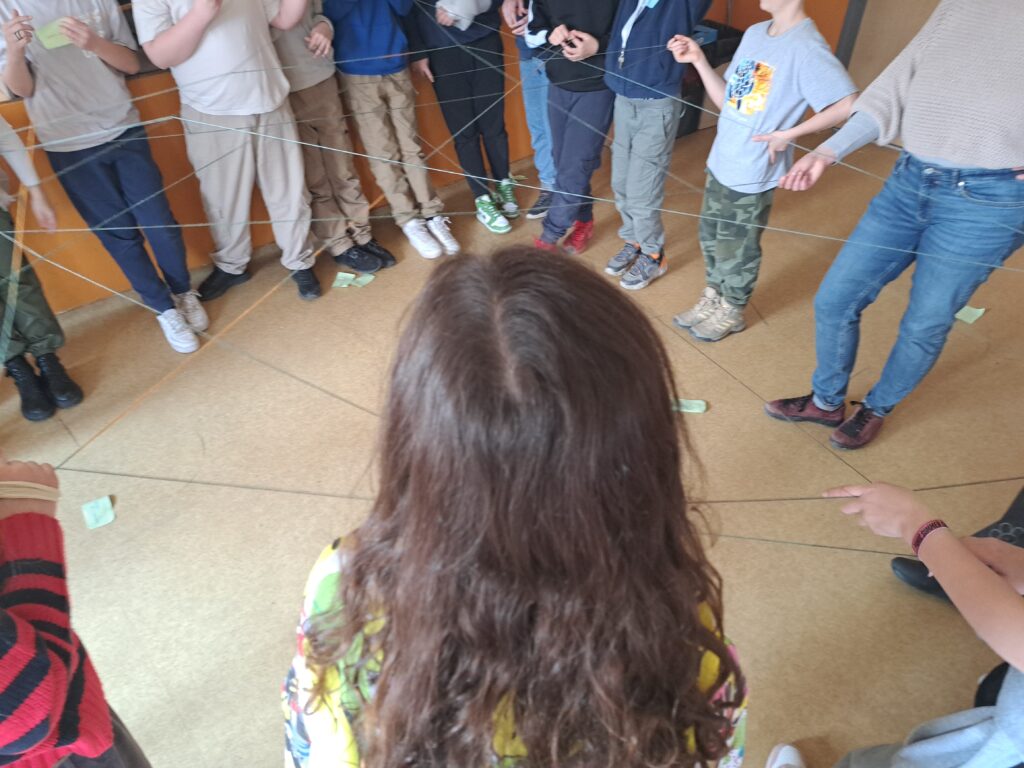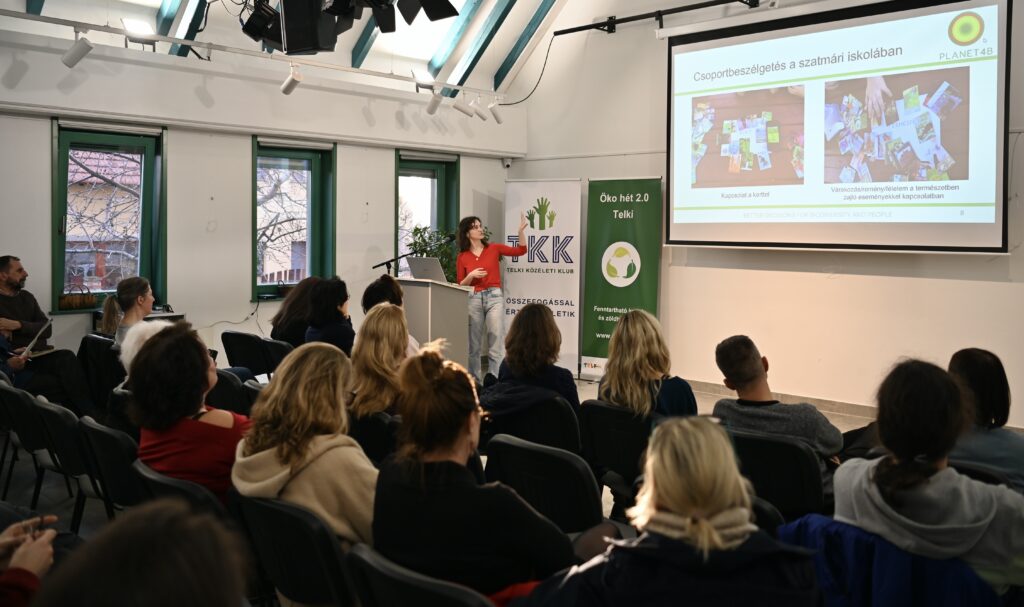Eszter Kelemen and Kármen Czett participated at the second Telki Eco Week that took place in the last week of March, focusing on sustainable gardens and green spaces. Our colleagues presented their research on the importance of experiential learning and school gardens in Hungary. In addition, they visited the local primary school, where they conducted a biodiversity lesson for students in grades 5 through 7.
Interactive lesson on biodiversity
On Tuesday and Wednesday, Eszter Kelemen and Kármen Czett held an interactive biodiversity lesson for 5th, 6th, and 7th-grade students at Pipacsvirág Primary School. The session was linked to the Hungarian case study of the PLANET4B Project, which explores experiential learning methods. During the lesson, students took on the roles of different living organisms to learn about biodiversity, the importance of various species, and their conservation status. At the end of the session, they physically visualised the food chains and other ecological connections of the assigned organisms, helping them understand the complex and interwoven relationships that shape ecosystems.

Learning About Nature, in Nature: Experiences That Shape the Future
In the first talk of Eco Week, Kármen Czett presented the research behind the school lessons, illustrating how experiential learning methods can foster a deeper understanding of biodiversity and sustainability among students. The PLANET4B research takes place in three Hungarian schools – although they represent three very distinct school contexts, school gardens are integral to both learning and community life in all of them. The research employs various methods, including a participatory theatre performance, the aforementioned interactive biodiversity lesson, and follow-up group discussions. Through active participation, students gained hands-on experience with nature’s complex relationships, while participatory theater and reflective conversations helped foster emotional engagement and critical thinking.
The study’s findings suggest that school gardens not only support knowledge transfer but also serve as vital tools for community building and increasing environmental awareness. However, teachers need greater flexibility to integrate these methods more broadly into education, which could facilitate systemic change. The presentation concluded with the idea that through school gardens, students can experience collaboration with both each other and their natural environment, enabling them to envision a new, more sustainable future. According to researchers, this approach may contribute to raising a new, more responsible generation that is eager to change the system.

What is the value of nature?
During the official opening of the Eco Week, Eszter Kelemen gave a talk on the diverse values of nature. The presentation covered instrumental values derived from nature’s usefulness, intrinsic values based on the right of all living beings to exist, and relational values stemming from our deep connections with nature, such as childhood memories, traditional knowledge, and worldviews. The lecture also explored how our underlying principles and knowledge systems shape the way we value nature and make decisions based on these values. To conclude, a discussion took place on the evolving and consciously shaped values of nature, using school gardens as an example. The key takeaway was that by working with nature, it becomes easier to shift from purely instrumental values toward relational values in our everyday decisions.